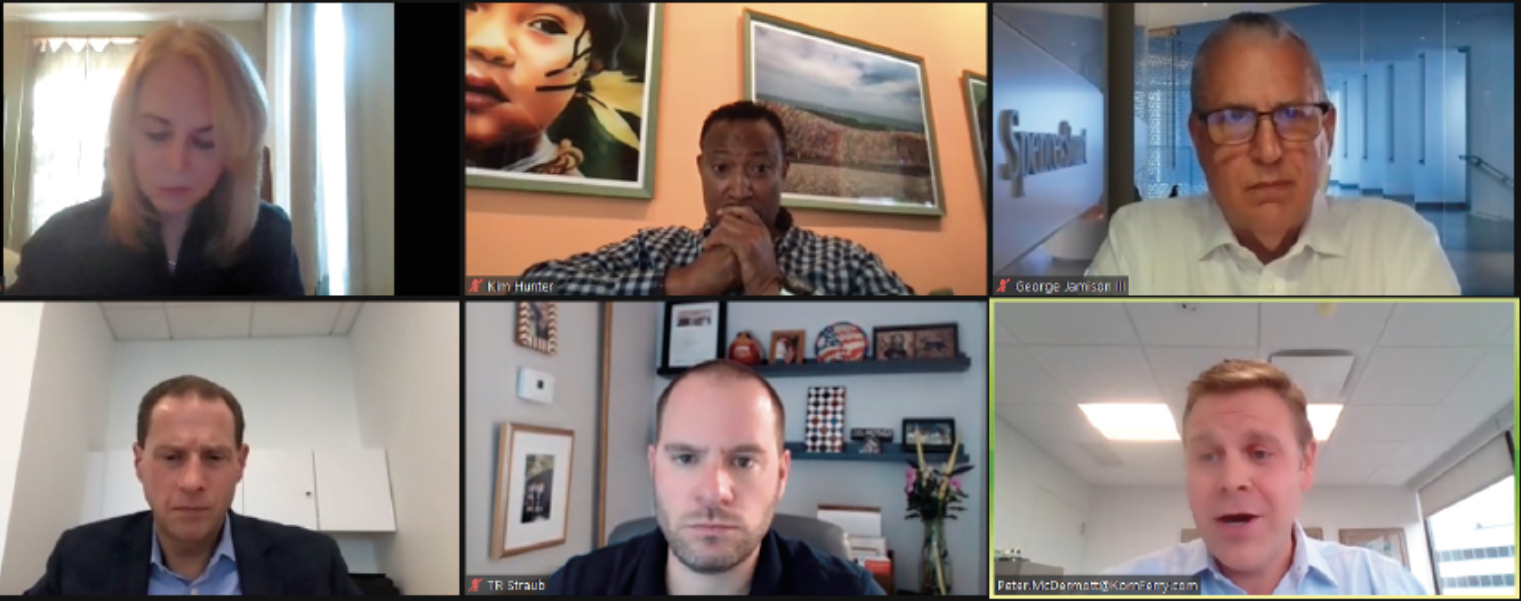The Career Advice That You Need to Succeed
By Greg Beaubien
November-December 2021
During his 35-year career, “The appreciation and the need for strong communications has never been higher” in organizations than it is now, Ray Day said. But that elevated stature also means communicators face increased expectations and more responsibilities.
Day, based in Washington, D.C., is vice chair of the Stagwell network of marketing agencies and a PRSA Board member. He moderated a workshop on Oct. 13 with communications recruiters, “ICONversation: A Road Map for Today’s and Tomorrow’s PR Career” at ICON 2021.
The communications role has become much broader than it was in the past, when the skills PR people needed were narrower and more specialized, said panelist Jean Allen, head of the communications practice in the New York office of executive-search firm Heidrick & Struggles.
“Although things are changing quickly — new stakeholders, new tools — certain things are fundamental that are never going to change,” she said. “You still have to be a good writer. You still have to be a tremendously skilled relationship person and have solid judgment.”
Even as recruiters look for PR candidates who also possess business and finance acumens, they often see applicants who lack traditional communications skills, the panelists said.
“While data analytics and all these new entities are critical, the fundamentals of oral and written communication skills have been lost, particularly among the younger generation,” as have critical-thinking skills, said Kim Hunter, managing partner of KLH & Associates, a Los Angeles-based search firm that specializes in recruiting racially diverse communications candidates.
At the same time, he said, “Many communications people don’t have a good sense of the business side” of their clients’ operations, such as how to read balance sheets. Public affairs and government relations are other areas where communicators often have skills gaps, he said.
“It is unbelievable how scarce good writing skills are getting and how obvious that is to other people in the C-suite,” said panelist George Jamison, leader of the corporate-communications practice for executive-search firm Spencer Stuart in Stamford, Conn. Job-seekers in communications should improve their writing and presentation skills and “know when you’ve said enough,” he said.
Peter McDermott concurred. Those beginning their careers in public relations “don’t necessarily have strong writing skills” and other building blocks of communication such as knowing how to pick up the phone and talk to someone or build relationships in the C-suite, said McDermott, senior client partner for corporate affairs and investor relations at management-consulting firm Korn Ferry in New York.
Candidates for communications jobs should know how to write, create digital content and adapt content for the particular stakeholders they serve, internally or externally, McDermott said. Today’s public relations professionals should be well-read and knowledgeable about current events and understand a “full array of news outlets and different perspectives,” he said. “If you remain versatile and adaptable, it will set the course for a successful career.”
Communications leaders are missing opportunities if they’re not working closely in areas such as corporate affairs and investor relations, said panelist TR Straub, corporate affairs consultant for management-consulting company Russell Reynolds Associates in Washington, D.C. For communicators, “it’s critical to play a role as a strategist in helping determine the direction of the organization,” he said.
What CEOs want from communicators
Company leaders seek communicators who are “enterprise players,” Allen said. As teams become smaller, CEOs need people who don’t “stay in their lane, who will make informal relationships so they can work across lines with colleagues,” she said. “You’ve got to be able to say, ‘Communications is what I do at my core, but I’ve touched on all the other disciplines or have worked closely with them.’”
After a year on the job, a chief communications officer should have developed a deep understanding of the company’s business and have the executive presence, credibility and gravitas to hold the room with senior leaders, Jamison said. Communicators need “creativity and the willingness to make decisions and take risks” with an informed point of view when a controversy or opportunity arises, he said.
For communications people, “the job market’s on fire right now,” Allen said. “It is a wonderful time to be in our profession, in terms of career opportunities.” Jamison agreed, saying “The value of these jobs has never been higher.”
But even as communicators rise in importance, “Don’t get too comfortable,” McDermott advised. “Keep a pulse on what’s modern and around the corner.”
Constantly develop and reinvent yourself professionally, said Day, who added: “Comfort and growth never coexist.”



